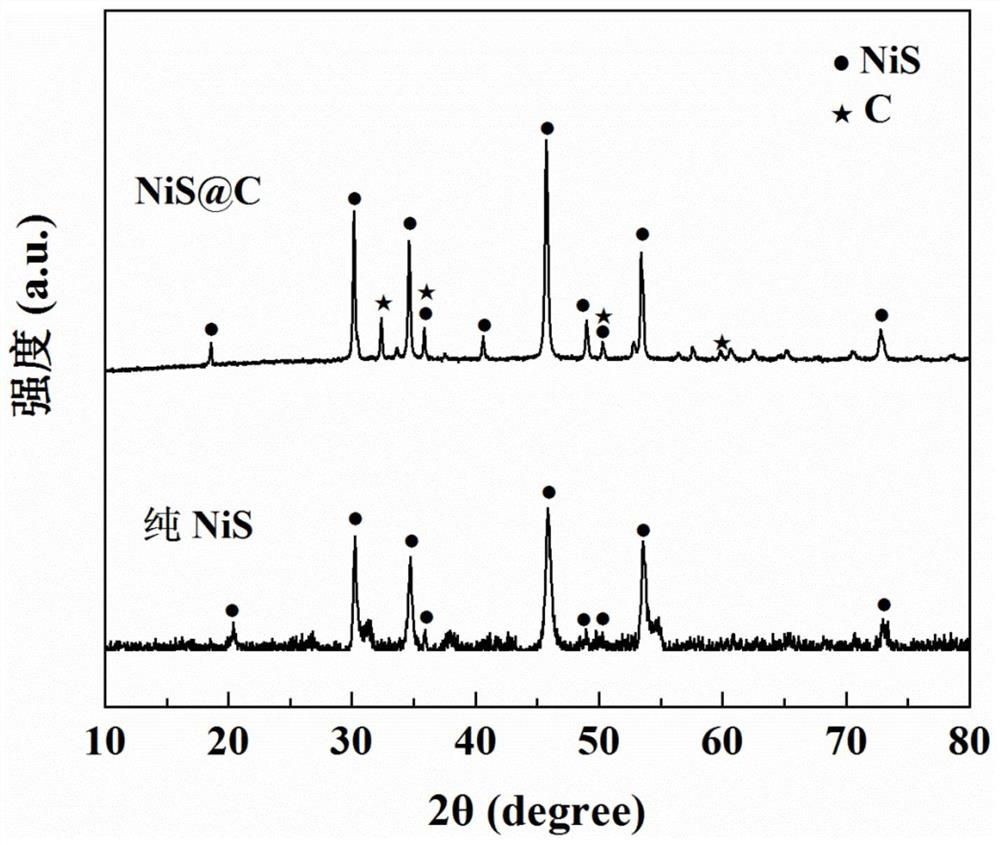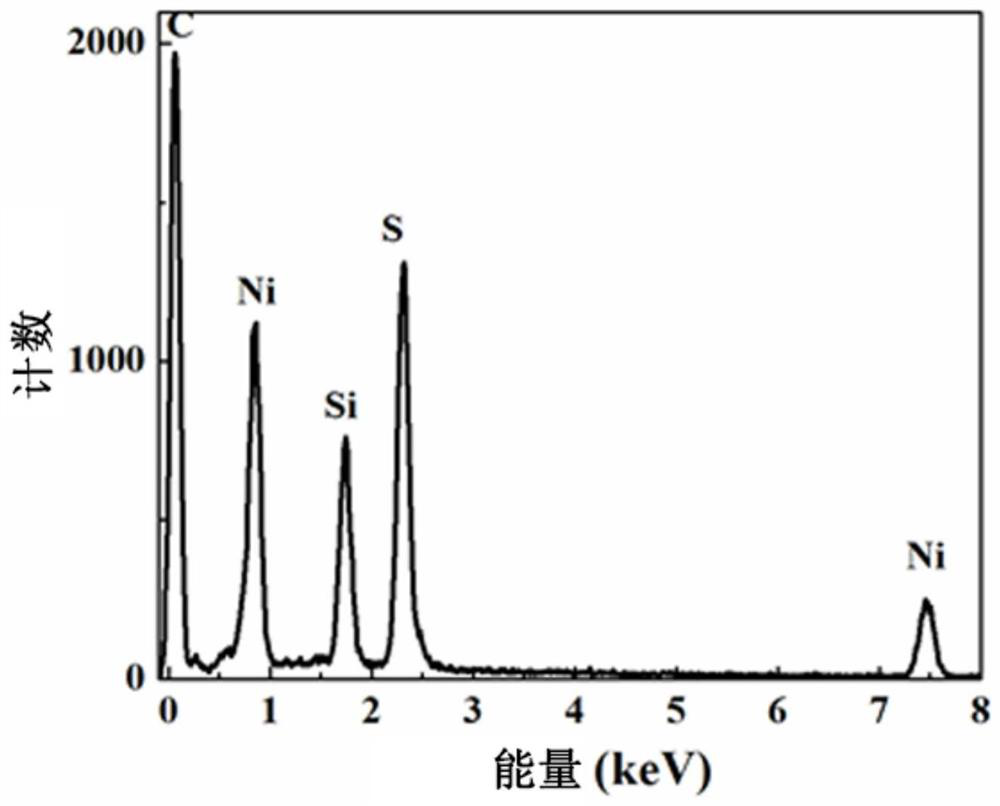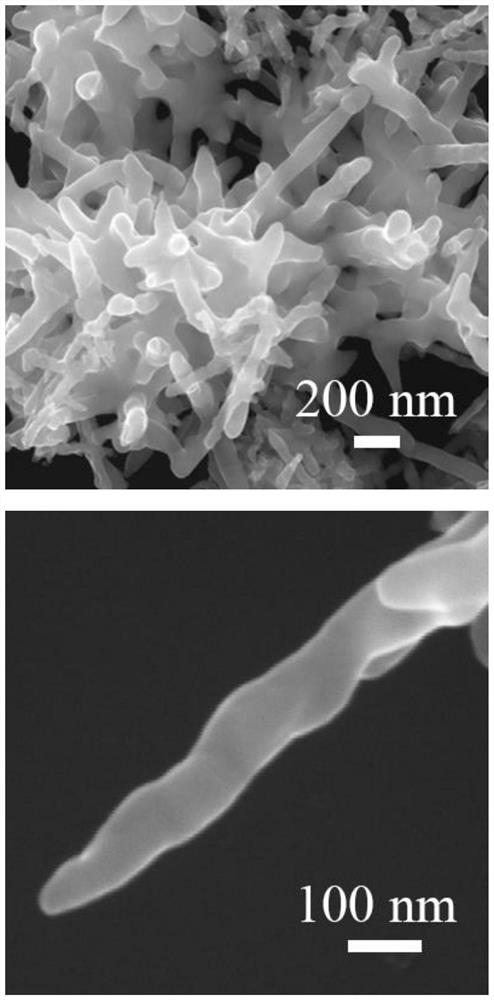nis@c nanocomposite material for battery negative electrode and preparation method thereof
A nano-composite material and battery negative electrode technology, applied in the field of electrochemistry, can solve problems such as restricting power batteries, only theoretical capacity, and safety issues of lithium dendrites, and achieve the effects of improved performance, large specific surface area, and simple preparation methods
- Summary
- Abstract
- Description
- Claims
- Application Information
AI Technical Summary
Problems solved by technology
Method used
Image
Examples
Embodiment 1
[0029] (1) Preparation of NiS by solvothermal method: Dissolve 0.4g of nickel chloride hexahydrate and 0.256g of thiourea in 33ml of absolute ethanol, stir for 10-20min, transfer to an autoclave for heating, the heating time is 10h, and the heating temperature Centrifuge at 180°C, then centrifuge the heated reaction solution at 8500rpm for 1 minute, discard the waste liquid, add absolute ethanol and centrifuge at 8500rpm for 1 minute, and discard the waste liquid. Then add deionized water and centrifuge at 8500 rpm for 1 minute, discard the waste liquid; add absolute ethanol and centrifuge at 8500 rpm for 1 minute, discard the waste liquid; repeat five times. After drying, dry in a vacuum oven at 60°C for 24 hours to obtain rod-shaped cross-nano-NiS;
[0030] (2) Coating carbon by hydrothermal method: Dissolve 0.100g NiS and 0.618g glucose in 30ml water, ultrasonically stir for 5min for 10-20min, transfer to an autoclave for heating, heating time is 3h, heating temperature is ...
PUM
 Login to View More
Login to View More Abstract
Description
Claims
Application Information
 Login to View More
Login to View More - R&D
- Intellectual Property
- Life Sciences
- Materials
- Tech Scout
- Unparalleled Data Quality
- Higher Quality Content
- 60% Fewer Hallucinations
Browse by: Latest US Patents, China's latest patents, Technical Efficacy Thesaurus, Application Domain, Technology Topic, Popular Technical Reports.
© 2025 PatSnap. All rights reserved.Legal|Privacy policy|Modern Slavery Act Transparency Statement|Sitemap|About US| Contact US: help@patsnap.com



